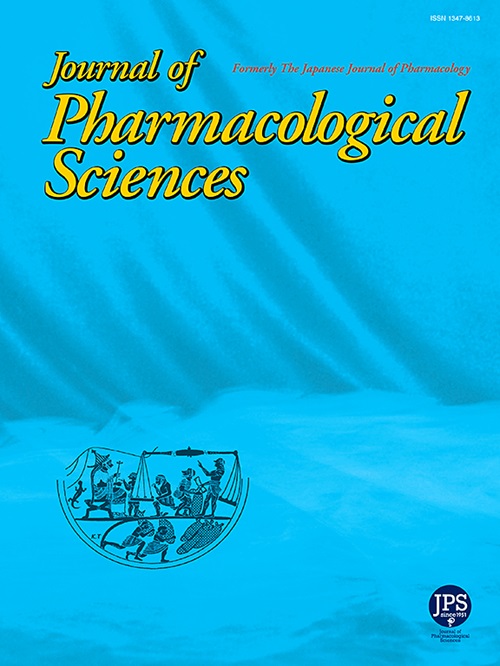神经激肽-1受体的日变化决定了阿瑞吡坦在小鼠体内抗肿瘤作用的剂量时间依赖性差异
IF 2.9
3区 医学
Q2 PHARMACOLOGY & PHARMACY
引用次数: 0
摘要
阿瑞匹坦是一种神经动素-1受体(NK1R)拮抗剂,具有作为一种新型抗癌药物的潜力。本研究在结直肠癌小鼠模型中探讨了时间疗法对阿瑞吡坦抗肿瘤作用的影响。阿瑞吡坦体外抑制结肠癌-26细胞增殖呈浓度依赖性,降低细胞周期相关基因的表达。在结肠-26肿瘤中观察到NK1R mRNA和蛋白水平的日变化,分别在zeitgeber时间(ZT) 2和ZT 10达到峰值。在zt6时给予阿瑞吡坦,在zt10时达到血药浓度峰值,与zt18时相比,显著减少肿瘤体积。尽管zt6组的血药浓度和AUC0-12 h较低,但较好的抗肿瘤效果表明,NK1R表达的变化而非其药代动力学与剂量时间相关。这些发现表明阿瑞吡坦可以通过调整NK1R表达节律来增强其对结直肠癌的抗肿瘤活性,值得进一步探索阿瑞吡坦的时间疗法在癌症化疗中的应用。本文章由计算机程序翻译,如有差异,请以英文原文为准。
Diurnal variations of neurokinin-1 receptor defines dosing time-dependent differences in antitumor effects of aprepitant in mice
Aprepitant, a neurokinin-1 receptor (NK1R) antagonist, has the potential as a novel anticancer agent. This study explored the impact of chronotherapy on the antitumor effect of aprepitant in a mouse model of colorectal carcinoma. Aprepitant inhibited the proliferation of Colon-26 cells in vitro in a concentration-dependent manner and reduced the expression of cell cycle-related genes. Diurnal variations in NK1R mRNA and protein levels were observed in Colon-26 tumors, peaking at zeitgeber time (ZT) 2 and ZT 10, respectively. Administration of aprepitant at ZT 6, achieving peak plasma concentration at ZT 10, significantly reduced the tumor volume compared with administration at ZT 18. Despite the lower plasma concentrations and AUC0–12 h in the ZT 6 group, superior antitumor effect suggests a dosing time-dependent efficacy due to variations in NK1R expression rather than its pharmacokinetics. These findings indicate that the antitumor activity of aprepitant against colorectal cancer can be enhanced by aligning its administration with NK1R expression rhythms, warranting further exploration of aprepitant chronotherapy in cancer chemotherapy.
求助全文
通过发布文献求助,成功后即可免费获取论文全文。
去求助
来源期刊
CiteScore
6.20
自引率
2.90%
发文量
104
审稿时长
31 days
期刊介绍:
Journal of Pharmacological Sciences (JPS) is an international open access journal intended for the advancement of pharmacological sciences in the world. The Journal welcomes submissions in all fields of experimental and clinical pharmacology, including neuroscience, and biochemical, cellular, and molecular pharmacology for publication as Reviews, Full Papers or Short Communications. Short Communications are short research article intended to provide novel and exciting pharmacological findings. Manuscripts concerning descriptive case reports, pharmacokinetic and pharmacodynamic studies without pharmacological mechanism and dose-response determinations are not acceptable and will be rejected without peer review. The ethnopharmacological studies are also out of the scope of this journal. Furthermore, JPS does not publish work on the actions of biological extracts unknown chemical composition.

 求助内容:
求助内容: 应助结果提醒方式:
应助结果提醒方式:


